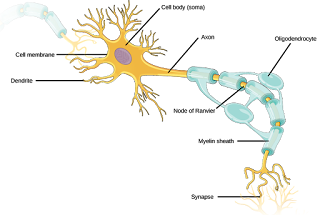The importance of FOX1 Genes in the brain development
We execute numerous
numbers of functions every day. Some are voluntary like reading, exercising,
writing or learning and involuntary like breathing, digesting or maintaining
homeostasis or in other words maintaining the normal balance of the body.
Long story short: we need our brains to breathe, eat,
study, exercise and even dream! Our brains are comprised of trillion cells. The
two types of brain cells-neurons and glial cells- are crucial for brain
functioning. Neurons basically transmit the electrical signals throughout the
body. The glial cells just provide insulation to these neurons to prevent
damage to these precious brain cells which basically guide us to do everything
we do every day. That is why glial cells are extremely important. But, still
how does the body determine what cells become neurons and what becomes glial
cells? Probably, this question motivated the scientists at SISSA to research
about these brain cells and their origins.
During research, scientists have discovered the importance
of FOXg1 gene in the origins of the glial and neuron cell. As the prior
knowledge tells us that when the FOX1 gene is mutated, there are abnormalities
in the development of the structure of the brain giving rise to FOXG1 syndrome.
Previously it was suggested that the stem cells gave rise to the neurons
and which in turn produce the glial cells through astrocytes. Astrocytes
provide nutrients to the neurons and modulation of the neuron activity.
However, what causes this process of transition was unknown. The SISSA
researchers have now discovered the importance of FOXg1gene in the
developmental processes.
During the research, the scientists discovered that the
level of FOXg1 gene expression reduces when the astrocyte production begins.
Not only that, the FOXg1 “controls” the master genes and implies the
choice between that of astrocytes and neurons.
Now, why is this research important? This research is
important because we now can better understand the role of FOXg1 genes in
neurological disorders including the FOXg1 syndrome causes abnormal brain
structure leading to intellectual disability. The FOXg1 gene plays an important
role in brain development and perhaps if this function is compromised it is
likely to create a cascade of problems.
However, with this
research, the possibility of gene therapy is perceived to overcome the problem
of the shortening time of the generation of the astroglial cells which is
common in the abnormal brain development syndrome. Also, researching the
importance of stem cells in developmental pathways can be useful to research
more about the gene therapies to cure such abnormal brain developmental
syndromes.
Labeled diagram of neuron cells
Image Citation:https://opentextbc.ca/biology/chapter/16-1-neurons-
Works Cited:
“Discovery of the
genetic “conductor” of brain stem cells. Science Magazine. https://www.sciencedaily.com/releases/2019/03/190304100038.htm. Date published:
March 4, 2019. Date Accessed: March 24, 2019
“FOXG1 syndrome - Genetics Home Reference - NIH”. U.S. National
Library of Medicine. https://ghr.nlm.nih.gov/condition/foxg1-syndrome#genes. Date Accessed: March 24,
2019

